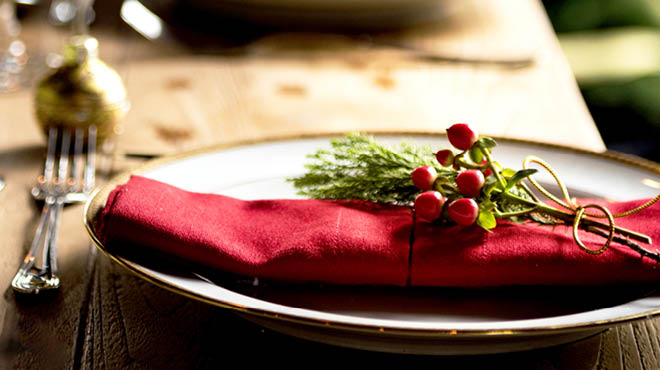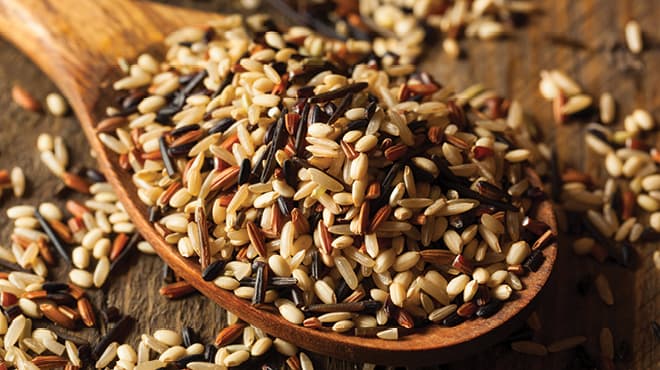Recent Posts
Support your immune function with good nutrition

One of the most valuable things you have is your health. As a dietitian, I have received numerous queries about recommended foods, supplements and diet patterns to boost immune function. While it is true that nutrition plays a large role in immune function, diet recommendations for the prevention of acute illnesses, like COVID-19 and other viruses, don't look a whole lot different than general guidelines for healthy eating.
I'll start by saying that the concept of boosting the immune system through diet is flawed, as boosting refers to something that is stimulated above the normal level. A good diet cannot boost the immune system, but it's important to maintain a functional immune system by avoiding immunodeficiency due to malnutrition or micronutrient deficiencies.
It's important to note that no single food or nutrient will prevent illness. Also, the immune system is incredibly complex and influenced by a variety of other factors, including stress level, age, sleep and other medical conditions.
A few key micronutrients have been identified as critical for the growth and function of immune cells, including:
- Iron
Iron is a component of enzymes critical for immune cell function. Sources include red meat, beans, nuts and fortified breakfast cereals. - Vitamin A
Vitamin A helps protect against infections by keeping skin and tissues in the mouth, stomach, intestines and respiratory system healthy. Sources include orange and red fruits, and vegetables like carrots, apricots and bell peppers. - Vitamin C
Vitamin C stimulates the formation of antibodies, and the production, function and movement of white blood cells. Sources include citrus fruits like oranges, grapefruit, strawberries and tomatoes. - Vitamin D
Vitamin D helps regulate antimicrobial proteins that can directly kill pathogens. Sources include sunlight; fatty fish, like salmon; egg yolks; and fortified dairy. - Vitamin E
Vitamin E works as an antioxidant to protect the integrity of cell membranes from damage caused by free radicals. Sources include seeds, nuts, vegetables oils and peanut butter. - Zinc
Zinc is needed for wound healing and supports immune response. Sources include meats, whole grains, milk, seeds and nuts.
Need a multivitamin or mineral supplement?
It's advised that people obtain the nutrients above from food rather than supplements, as foods contain more health-promoting benefits. For most, a balanced diet will supply adequate amounts of nutrition to maintain a strong immune system. However, certain populations, like pregnant people, the elderly and those who are critically ill, cannot eat a variety of nutritious foods or have increased nutrients needs. In these cases, vitamin and mineral supplements can help fill nutritional gaps.
A general multivitamin or mineral supplement providing no more than 100% of your recommended daily allowance can be used and is generally safe for many people. Your health care provider may recommend further supplementation based on your lab values or medical status.
Consult with your health care provider before beginning any supplement. Avoid "mega doses" or supplements that supply greater than 100% of your recommended daily allowance, as they often offer no additional benefit and can be harmful in some cases. Remember that supplements are not a substitute for a healthy diet, as they do not contain all the benefits in food.
If you're looking to try a new recipe that supplies nutrients needed for good immune function, consider one of these recipes:
Grilled cod with crispy citrus salad
By Mayo Clinic staff
Serves 2
8 ounces cod
1 teaspoon olive oil
1½ cups chopped spinach
1½ cups shredded kohlrabi
1 cup diced celery
1½ cups shredded carrot
2 tablespoons chopped fresh basil
1 tablespoon chopped fresh parsley
¾ cup chopped red bell pepper
1 tablespoon minced garlic
Zest and juice of 1 lemon
Zest and juice of 1 lime
Zest and juice of 1 orange
1 large grapefruit cut into segments
1 medium orange cut into segments
Black pepper to taste
Spray a grill or broiler pan with cooking spray. Turn on grill or heat broiler. Place cod on grill or broiler pan, and brush lightly with oil. Grill or broil 3 to 4 inches from heat for about 10 minutes, or until fish flakes easily with a fork. The fish should reach an internal temperature of 145 F. Set aside. In a large bowl, toss together remaining ingredients, except for grapefruit and orange segments. Divide salad between two plates. Top with cod and citrus pieces, and black pepper to taste.
Nutritional per 4-ounce cod and 4 cups salad serving: 412 calories; 12 grams fat (2 grams saturated fat); 236 milligrams sodium; 50 grams carbohydrates; 26 grams protein; 13 grams fiber.
Roasted red pepper hummus
By Mayo Clinic staff
Serves 16
2 cups chickpeas
1 cup roasted red bell pepper, sliced, seeded
2 tablespoons white sesame seeds
1 tablespoon lemon juice
1 tablespoon olive oil
1¼ teaspoons cumin
1 teaspoon onion powder
1 teaspoon garlic powder
1 teaspoon kosher salt
¼ teaspoon cayenne pepper
In a food processor, process all ingredients until smooth.
Nutritional per 3-tablespoon serving: 53 calories; 2 grams fat (0 gram saturated fat); 126 milligram sodium; 7 grams carbohydrates; 2 grams protein; 2 grams fiber.
By Mayo Clinic Health System staff.





